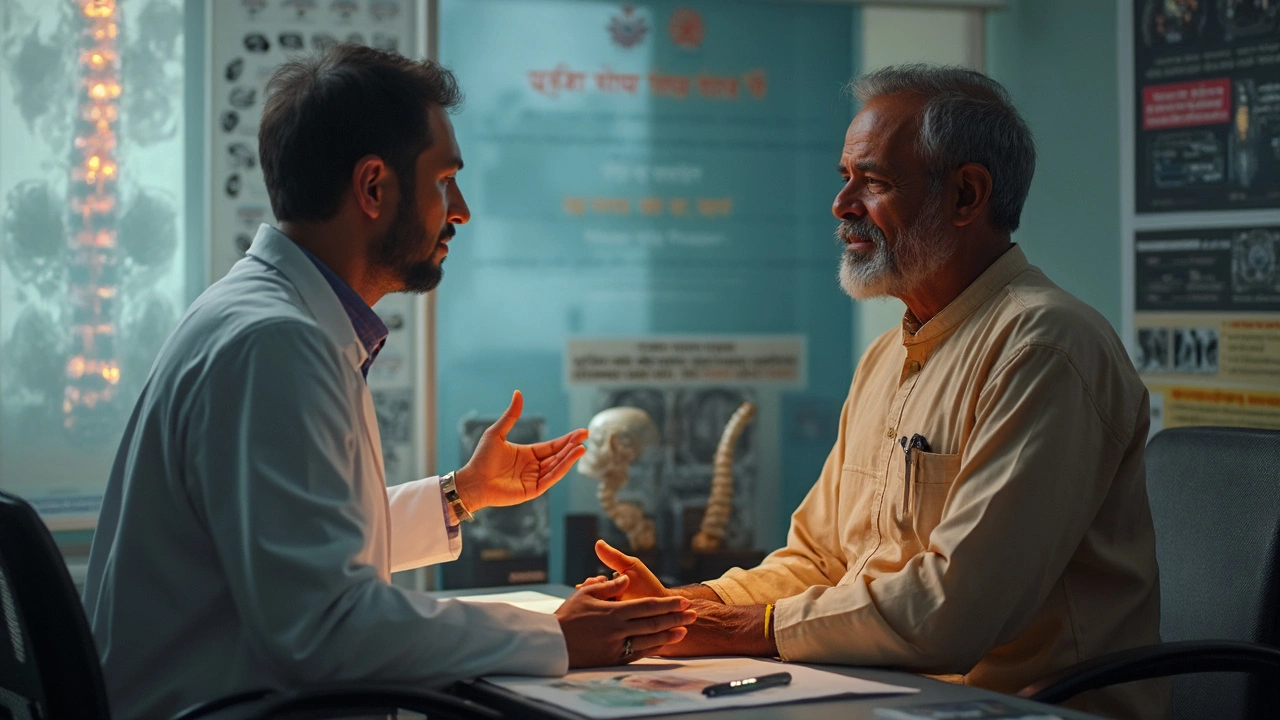Wondering who to see when your back starts acting up? This article explains what a back doctor is called, the types of specialists who treat spine problems, and when you should actually visit one. Get practical advice on how to pick the right doctor, what to expect at appointments, and why seeing a specialist makes a difference. We’ll dig into how back pain is diagnosed and treated, plus some real-world tips you’ll want if you’re facing chronic pain.
Read MoreBack Doctor: How to Pick the Right Spine Specialist for Pain Relief
If your back aches, stiffens, or hurts after a simple move, you probably need a back doctor. A back doctor isn’t just any doctor – they specialize in spine health, bone alignment, and nerve issues. Knowing when to book an appointment and what to expect can save you weeks of frustration and extra visits.
When to See a Back Doctor
Most people brush off a sore back, but certain signs mean it’s time to get professional help. If the pain lasts more than a week, gets worse at night, or spreads to your legs, you should call a back doctor. Another red flag is a recent injury that leaves you unable to lift, bend, or sit comfortably.
Other common reasons include persistent lower‑back pain, chronic sciatica, or repeated episodes of muscle spasms. Even if you’ve tried over‑the‑counter meds and stretches without relief, a specialist can run imaging tests, pinpoint the exact cause, and suggest targeted treatment options.
What to Ask During Your First Visit
Walking into a consultation prepared makes the whole process smoother. Start with a clear description of your pain: where it hurts, when it started, and what makes it better or worse. Then ask these key questions:
- What’s the likely cause of my pain?
- Do I need X‑rays, MRI, or any other scans?
- What treatment options are available – physical therapy, medication, injections, or surgery?
- What are the risks and recovery times for each option?
- How can I prevent future back issues?
These questions mirror the advice from our popular post “Key Questions to Ask Your Orthopedic Doctor,” which helps you get the most out of any appointment.
Don’t forget to ask about lifestyle changes. Your back doctor may suggest simple adjustments – like changing how you sit at a desk, sleeping on a firmer mattress, or adding core‑strengthening exercises. Small tweaks often make a big difference.
When the doctor recommends a procedure, request a clear explanation of what will happen step‑by‑step. Knowing the timeline, pain‑control plan, and what you’ll need at home helps you stay confident and prepared.
If surgery is on the table, ask about the surgeon’s experience with your specific condition. You can also ask for success rates and typical recovery milestones. The more details you have, the better you can weigh the pros and cons.
Lastly, discuss follow‑up care. Ask how often you’ll need check‑ups and what signs should prompt an earlier visit. A good back doctor will set a realistic follow‑up schedule and give you clear guidance on monitoring progress.
Choosing the right back doctor is about trust, communication, and expertise. Look for doctors with credentials in orthopedics, neurosurgery, or dedicated spine medicine. Many clinics list their specialists’ training and patient reviews online – take a few minutes to read them.
Remember, pain relief is a partnership. Your back doctor provides the medical roadmap, but you play a huge role by following advice, staying active, and reporting any changes promptly. With the right specialist and a clear plan, you can get back to the activities you love without the constant ache.
Need more tips? Check out our article “Best Bone Doctors: Choosing Your Specialist for Strong Bones” for a deeper dive into selecting top‑rated bone and spine experts. Armed with the right questions and a solid plan, you’re ready to tackle back pain head‑on.





